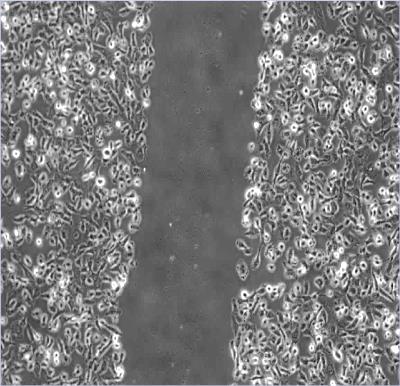
Joon Kim
Korea University, South Korea
Title: Glycosylated ribosomal protein S3, secreted from various cancer cells, is a possible cancer biomarker.
Biography
Biography: Joon Kim
Abstract
Ribosomal protein S3(rpS3) is a genuine component of the 40S ribosomal small subunit. However, it has been known as a versatile protein with multiple other extra-ribosomal functions in apoptosis, cell cycle control, DNA repair etc. It has a DNA repair endonuclease activity which is related with various cancers. Recently, we have discovered that this protein forms a dimer and is secreted after N- glycosylation. It is secreted only from various cancer cells but not in normal cells. We also have confirmed that rpS3 is secreted more into media when cancer cells are more invasive. The secretion pathway turned out to be a standard ER-Golgi dependent pathway. We are currently developing various antibodies against rpS3 which could be used as useful reagents for future cancer biomarkers.
Image

Fig 1. Cell Migration Assay for Invasive Cancer Cells
References
1.Kim YJ, Lee MS, Kim HD, Kim J*. (2016) The ribosomal protein S3 (rpS3) secreted from various cancer cells is N-linked glycosylated. Oncotarget (in press)
2. Kim WH, Kim HD, Jung Y, Kim J* and Chung J* (2015) Drosophila Low Temperature Viability Protein 1 (LTV1) Is Required for Ribosome Biogenesis and Cell Growth Downstream of Drosophila Myc (dMyc) J. Biol. Chem. 290:13591-13604
3. Kim YJ, Kim HD and Kim J* (2013) Cytoplasmic ribosomal protein S3 (rpS3) plays a pivotal role in mitochondrial DNA damage surveillance. BBA- Mol Cell Res 1833(12): 2943-2952
4. Kim HD., Kim, TS. and Kim, J*. (2011) Aberrant ribosome biogenesis activates c-Myc and ASK1 pathways resulting in p53-dependent G1 arrest. Oncogene 30(30): 3317-27
5. Joo,YJ., Kim, JH., Kang, UB., Yu, MH. and Kim, J*. (2011) Gcn4p-mediated transcriptional repression of ribosomal protein genes under amino-acid starvation EMBO J. 30(5): 859-872,
